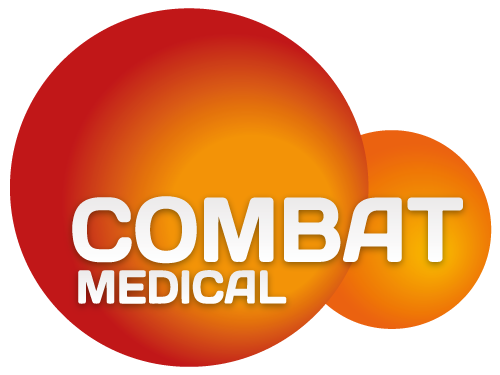Bladder cancer is a formidable adversary, affecting thousands of people worldwide every year. In particular, patients with BCG-unresponsive bladder cancer face daunting treatment challenges. Historically, radical cystectomy has been the mainstay treatment when conventional therapies, such as Bacillus Calmette-Guérin (BCG) therapy, have failed. However, Combat Medical’s HIVEC® treatment, as an alternative to radical cystectomy, is about to enter a phase 3 clinical trial.
Introducing HIVEC-HEAT
The phase 3 trial for HIVEC-HEAT, or Hyperthermic intravesical mitomycin mEdac for patients with BCG-unresponsive bladder cancer, will be a groundbreaking study designed to offer patients a potentially less invasive alternative to radical cystectomy. This trial is a pivotal moment in Combat Medical’s efforts to revolutionise bladder cancer treatment, targeting patients who have already exhausted other therapeutic avenues. With the Phase 3 trial expected to start recruiting next month, this marks a significant milestone for both Combat Medical and the medical community at large.
The HIVEC-HEAT trial will enrol 238 patients with BCG-unresponsive non-muscle invasive bladder cancer (NMIBC). The aim of the study is to determine if HIVEC®—using hyperthermia combined with intravesical mitomycin—can offer comparable outcomes to radical cystectomy, potentially providing patients with an effective bladder-preserving treatment.
The trial will be run by the University of Leicester and is spearheaded by Professor Leyshon Griffiths, Associate Professor and Honorary Consultant Urological Surgeon at the University of Leicester & University Hospitals of Leicester NHS Trust. Professor Griffiths, a respected figure in the field of urological oncology, brings vast expertise and leadership to this crucial research initiative.
Understanding HIVEC® Technology
HIVEC® is a novel approach that combines the delivery of heated chemotherapy directly into the bladder. Traditional intravesical chemotherapy for bladder cancer involves administering chemotherapeutic drugs such as mitomycin C directly into the bladder through a catheter. While this approach has shown efficacy in treating NMIBC, many patients, particularly those who are BCG-unresponsive, experience cancer recurrence or progression.
The core innovation of HIVEC® lies in the addition of hyperthermia to the chemotherapy process. Research has shown that heating the chemotherapeutic agent can enhance its effectiveness by increasing drug absorption into the bladder wall, creating a hostile environment for cancer cells. The heat-induced stress on cancer cells makes them more susceptible to the cytotoxic effects of the chemotherapy, thus enhancing the therapeutic impact.
Combat Medical’s HIVEC® technology employs the COMBAT BRS (Bladder Recirculation System), a specialised device designed to circulate heated chemotherapy throughout the bladder. By maintaining the chemotherapeutic solution at a steady temperature of around 43 degrees Celsius, HIVEC® aims to improve the efficacy of treatment, offering new hope to patients with bladder cancer who are unresponsive to other forms of therapy.
A Phase 3 Trial with Game-Changing Potential
The HIVEC-HEAT trial aims to provide rigorous clinical evidence to support HIVEC® as a viable treatment option for BCG-unresponsive bladder cancer. The Phase 3 trial, expected to recruit its first patient next month, will be conducted across multiple centres, with the University of Leicester serving as the central hub.
This trial will compare the outcomes of patients treated with HIVEC® against those who undergo radical cystectomy. The primary goal is to determine whether HIVEC® can achieve similar or superior rates of cancer control without the need for bladder removal. Secondary outcomes, such as quality of life, bladder function, and recurrence-free survival, will also be measured.
If the trial proves successful, HIVEC® could provide a significant breakthrough for patients who are otherwise facing the life-altering consequences of radical cystectomy. For many patients, bladder removal is associated with not only physical and emotional challenges but also a notable impact on long-term quality of life. By potentially offering a bladder-preserving alternative, HIVEC® could fundamentally alter the standard of care for bladder cancer patients.
Professor Leyshon Griffiths – Leading the Charge
The HIVEC-HEAT trial is being led by Professor Leyshon Griffiths, whose extensive experience in urology and oncology positions him perfectly to oversee this critical research. A leader in the field, Professor Griffiths has long been committed to advancing treatments for bladder cancer and improving patient outcomes. His leadership in the HIVEC-HEAT trial reflects his dedication to exploring cutting-edge therapies that have the potential to shift the treatment paradigm for NMIBC patients.
What’s Next for HIVEC®?
The HIVEC-HEAT trial represents a significant step forward in Combat Medical’s mission to deliver innovative, less invasive treatments for bladder cancer. As the trial moves forward, the medical community will be closely monitoring its outcomes, eagerly awaiting the potential for HIVEC® to become a standard treatment option for BCG-unresponsive NMIBC.
For patients and their families, the trial brings renewed hope. Radical cystectomy, while effective, is a life-altering surgery with profound implications for the patient’s quality of life. If HIVEC® can offer similar efficacy while preserving the bladder, it will represent a monumental shift in how we approach bladder cancer treatment.

